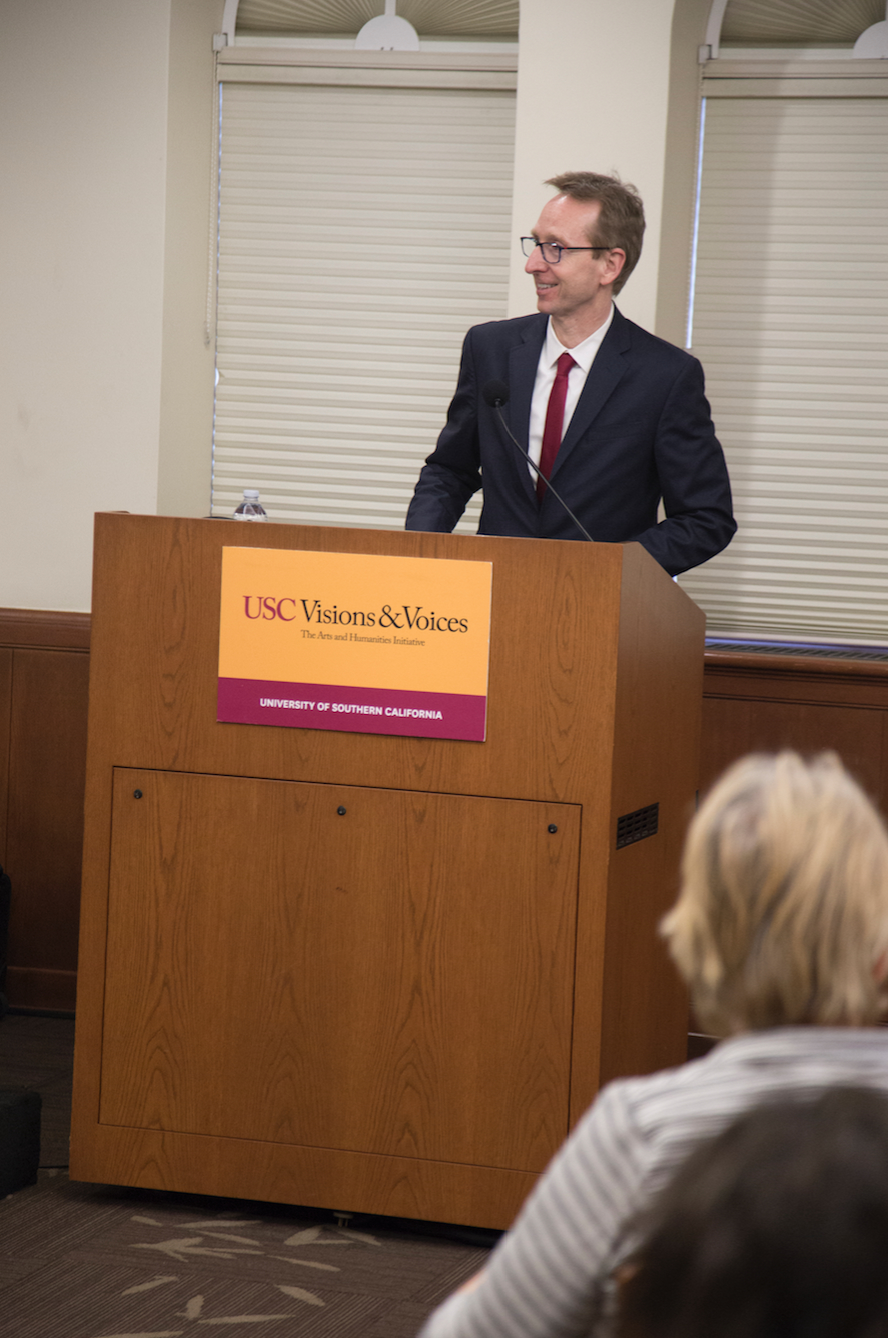Panel explores the future of immigration
With President Donald Trump’s recent decision to rescind the Deferred Action for Childhood Arrivals program, immigration has become a topic of debate and discussion in the recent political climate, in regards to refugees, undocumented individuals and their experiences.
On Tuesday evening, students, professors and community members gathered for a Visions and Voices event titled “Borders, Bans, Walls, and Welcomes: U.S. Immigration Today.”
Featuring Leilani Chan, founding artistic director of TeAda Productions, Ali Noorani, executive director of the National Immigration Forum, and USC professor Manuel Pastor, director of the Center for the Study of Immigrant Integration, the conversation focused on the immigrant experience, DACA and refugees.
The talk was moderated by Roberto Suro, a USC professor and author of Writing Immigration: Scholars and Journalists in Dialogue.
Suro started the conversation with DACA, a program that legally allows undocumented immigrants to work and live in the U.S., saying that it focuses on an important human connection to immigration policy.
“The issue of the Dreamers obliges us to think about immigration in terms of our kin, our neighbors, our classmates, our colleagues, our fellow Trojans,” Suro said. “It’s way of thinking about immigration as an element of policy that involves people who are already here, who are already part of our families, who are already part of our communities.”
Pastor also emphasized the importance of DACA through a personal anecdote about a young woman who he saw benefit from the policy.
“DACA gave a bunch of young people a future — it allowed them to see themselves as part of a society that they grew up in, that they feel they are a part of, that they want to contribute to,” Pastor said. “The thing that we need to realize is that what this decision today did in its celebration of cruelty as public policy is to try to strip away people’s ability to imagine their future in the only country they’ve known.”
Pastor added that he does not see Trump’s decision as being rooted in rational policy.
Both Noorani and Chan spoke about their professional work in the field of immigration reform. Noorani spoke about his work with the National Immigration Forum and in states such as Ohio and Iowa, which are struggling with the cultural changes that come with shifting demographics.
“For us as an organization, we really approached this with the idea that for the majority of Americans, the immigration debate isn’t about politics or policy,” Noorani said. “It’s not about politics and policy but about culture and values.”
Chan talked about her experiences with TeAda Productions, a theater company that works with communities to collect stories about immigration and puts them on a stage.
Panel members stressed that a mass deportation would not solve problems, and instead would hurt the American economy.
“The best way to … make sure the undocumented worker, the legal immigrant worker and the American worker are not being exploited is to level the playing field so that everyone is competing for the same job at the same wage with the same legal status,” Noorani said.

